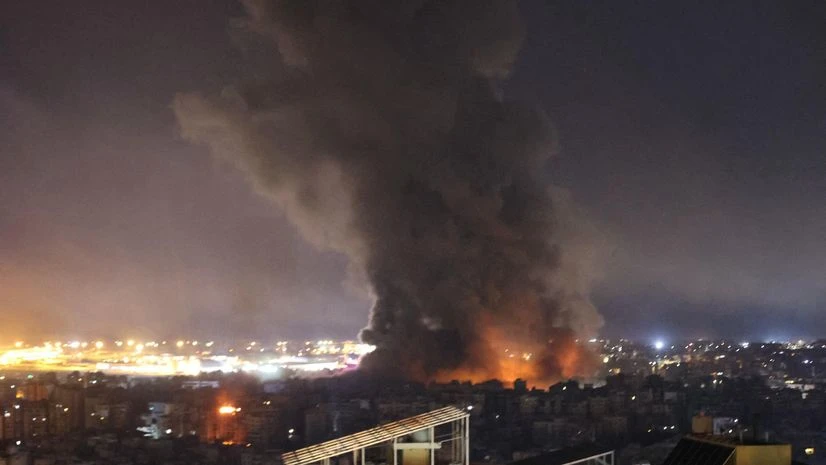An Israeli strike on a five-story building where displaced Palestinians were sheltering in the northern Gaza Strip killed at least 60 people early Tuesday, more than half of them women and children, Gaza's Health Ministry said.
In a separate development, Lebanon's militant group Hezbollah said it has chosen Sheikh Naim Kassem as its new top leader following the killing of Hassan Nasrallah in an Israeli airstrike last month.
The group said in a statement that Hezbollah's decision-making Shura Council elected Kassem, who had been Nasrallah's deputy leader for over three decades, as the new secretary-general. Hezbollah vowed to continue with Nasrallah's policies until victory is achieved.
Dr Marwan al-Hams, director of the field hospitals' department at the Gaza Health Ministry, announced the toll from Tuesday's strike in the northern town of Beit Lahiya at a news conference. He says another 17 people are missing.
The ministry's emergency service says the dead include at least 12 women and 20 children, including babies.
There was no immediate comment from the Israeli military, which has been waging a large-scale operation in northern Gaza for more than three weeks, targeting what it says are pockets of Hamas militants who have regrouped there.
More From This Section
The dead included a mother and her five children, some of them adults, and a second mother with her six children, according to an initial casualty list provided by the emergency service.
Dr Hossam Abu Safiya, the director of the nearby Kamal Adwan Hospital, said it was overwhelmed by the wave of wounded people from the strike. Israeli forces raided the medical facility over the weekend, detaining dozens of medics.
The Israeli military has repeatedly struck shelters for displaced people in recent months, saying it carried out precise strikes targeting Palestinian militants and tried to avoid harming civilians. The strikes have often killed women and children.
The military said it detained scores of Hamas militants in the raid on Kamal Adwan, the latest in a series of raids on hospitals since the start of the war.
Israel's latest major operation in northern Gaza, focused on the Jabaliya refugee camp, has killed hundreds of people and driven tens of thousands from their homes in another wave of mass displacement more than a year into the war in the tiny coastal territory.
Israel has also sharply restricted aid to the north this month, prompting a warning from the United States that failure to facilitate greater aid efforts could lead to a reduction in military aid.
Palestinians fear Israel is enacting a plan proposed by a group of former generals, who suggested the civilian population of the north should be ordered to evacuate, aid supplies should be cut off, and anyone remaining there should be considered a militant.
The military has denied it is carrying out such a plan, while the government has not said clearly whether it is carrying out all or part of it.
On Monday, Israel's parliament passed two laws that could prevent the UN agency for Palestinian refugees the largest aid provider in Gaza from operating in the Palestinian territories. It was the culmination of a long-running campaign against UNRWA, which Israel contends has been infiltrated by Hamas, allegations denied by the agency.
The war began when Hamas-led militants stormed into Israel on October 7, 2023, killing some 1,200 people, mostly civilians, and abducting around 250. Some 100 hostages are still inside Gaza, a third of whom are believed to be dead.
Israel's retaliatory offensive has killed over 43,000 Palestinians, according to local health authorities. Around 90 per cent of the population of 2.3 million have been displaced from their homes, often multiple times.

)